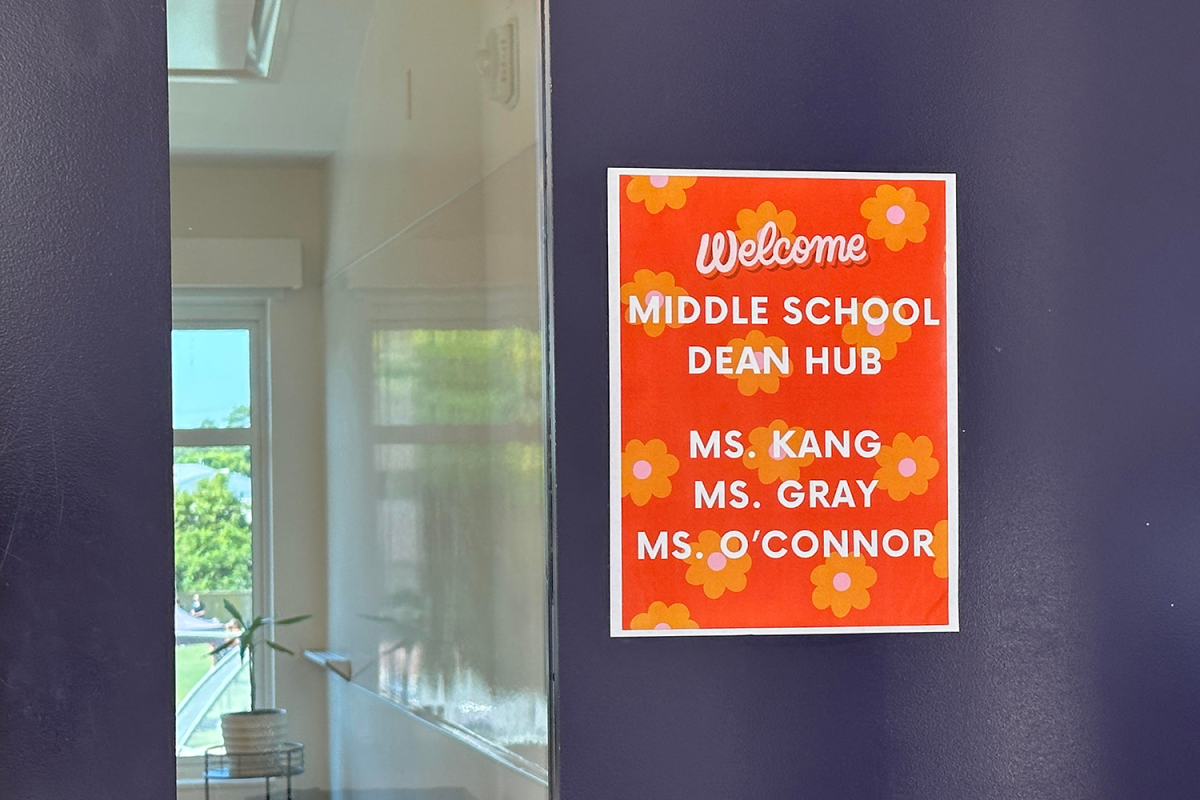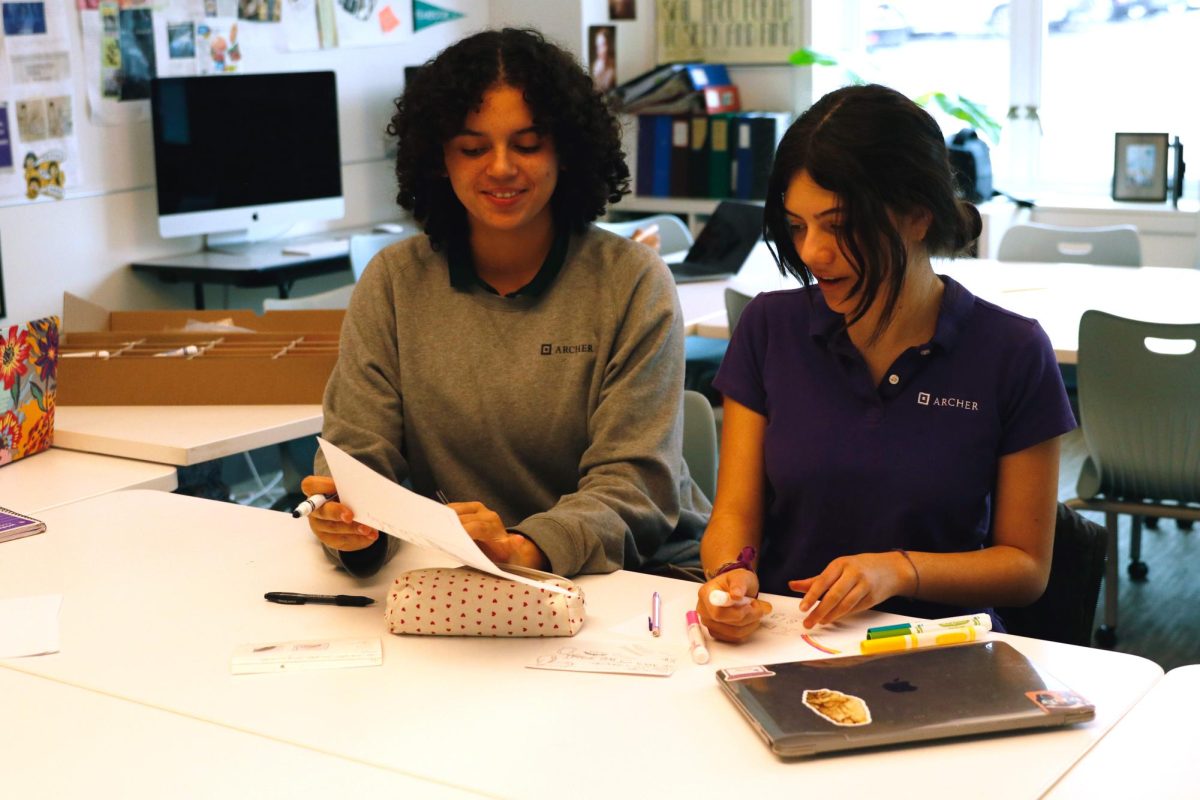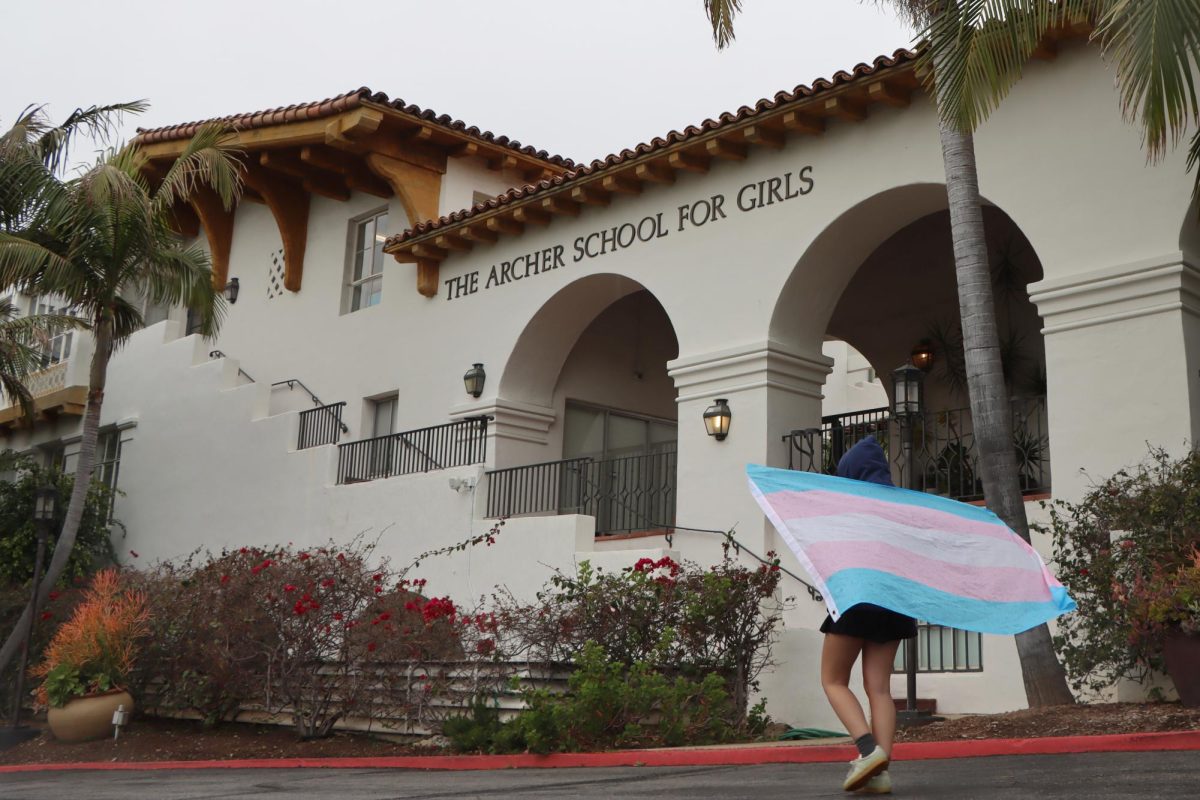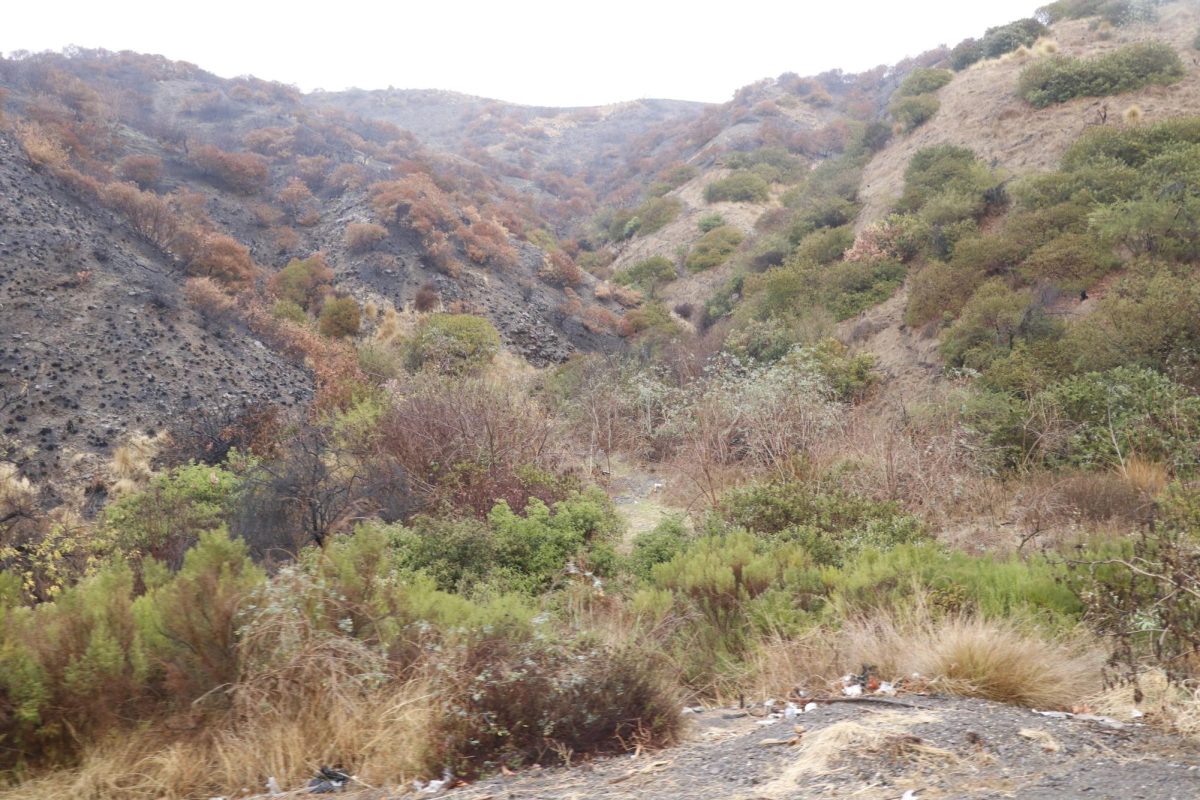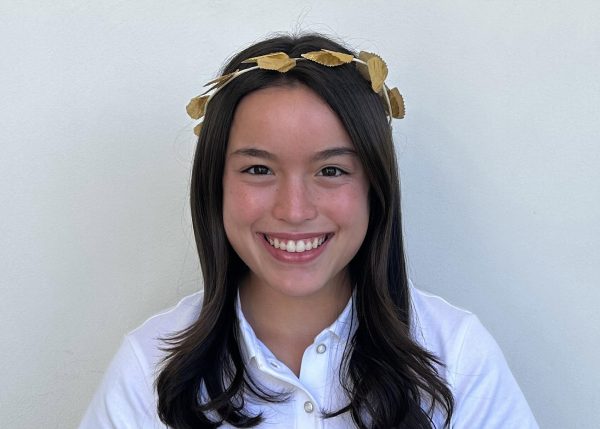In the past, there has been one dean of students or dean of student life, equity and inclusion, in addition to class deans who often oversaw one class over the course of their high school experience. For the first time, the class deans’ roles have shifted to encompass a broader range of responsibilities, represented by their new title: Deans of Culture, Community and Belonging, or DCCBs.
Head of School Elizabeth English sent a welcome email Aug. 17 to the Archer community sharing information about administrative changes and the addition of DCCBs at each grade level. She wrote that former Director of Academic Programs Reed Farley is now serving as the middle school director, and former Dean of Student Life, Equity and Inclusion Samantha Hazell-O’Brien is now serving as the upper school director.
“The DCCBs — they are now administrators as well — so we imagine them as a grade level dean of student life, equity and inclusion,” Hazell-O’Brien said. “Instead of an office of one person overseeing that for sixth through 12th grade, now you have an administrator on each grade level, plus a division director who is still charged with those same tenants of belonging, of inclusivity, of academic excellence.”
Role of Deans of Culture, Community and Belonging
Seventh grade Dean of Culture, Community and Belonging Emily Gray has been a dean for three years. In addition to taking on this new iteration of the role, this is also the first year she is a dean and teacher for the same grade.
“I have an idea of what their day-to-day lives look like in a way that I didn’t when I was deaning ninth grade because I was still teaching eighth grade,” Gray said. “I feel like, because I am teaching fewer classes, I have more time to be spending on this role, which is great because I feel like I’m doing a deeper dive into getting to know the class culture, getting to know the individual students, getting to know the families.”
Twelfth grade Dean of Culture, Community and Belonging Stephanie Nicolard followed the Class of 2023 from ninth through 12th grade. She said that this year and onwards, it seems DCCBs will remain at the grade level rather than moving with the class.
DCCBs also participate on the Honor Education Council and are more directly involved in initiatives relating to overall belonging as well as diversity, equity and inclusion.
“I feel like I get to be a little bit more creative in the position,” Nicolard said. “There’s a little bit more freedom and flexibility to try different initiatives out, see how they work, see if they benefit the overall culture of the grade and then adjust.”
Impacts of the Pandemic on Mental Health and Connection
According to the CDC, “nearly 3 in 5 (57%) U.S. teen girls felt persistently sad or hopeless in 2021 — double that of boys, representing a nearly 60% increase and the highest level reported over the past decade.” Nicolard said she thinks the shift to include DCCBs has stemmed from a greater need for connection and support, especially for teenage girls.
“It’s no secret that anxiety and depression rates, particularly in teenage girls, have been increasing … I also think coming back from the pandemic, there’s a greater need for community and bonding — face-to-face, in person at school,” Nicolard said. “School is where a young person spends most of their lives. Teenagers spend most of their time at school, so I think there’s a demand for school to be a place of belonging and safety.”
A 2023 study on the impact of COVID-19 on young people with and without mental health care needs revealed “high levels of clinical depression (48%), anxiety (51%), and loneliness in both samples.”
Similarly, 10th grade Dean of Culture, Community and Belonging Tracy Poverstein highlighted the impact of the pandemic and current issues on students’ mental health, which she said contributes to the inclusion of additional support at school.
“We’ve seen post-pandemic, students all over, not just at Archer, struggling with more mental health issues,” Poverstein said. “Also, the world that these students live in … is much, much more complicated … between social media and climate change and all of the hurdles you face, we felt like there needed to be more support.”
The transition to implement the DCCB positions began February of last school year, according to Hazell-O’Brien. She was involved in the application process for the positions, which she said included interviews and summer training sessions with resources like CASEL. Over the summer, DCCBs completed further training in social and emotional learning, diversity, equity, inclusion and belonging and the disciplinary aspect of being a dean with a restorative justice approach.
According to Hazell-O’Brien, Archer last had middle and upper school directors in the 2020-2021 school year, and from 2021-2023, Farley was the director of academic operations and oversaw middle and upper school. Hazell-O’Brien said that reverting to having a middle school and upper school director this year — along with the addition of DCCBs and two new school counselors — has helped bolster student support and bridge academics with social and emotional aspects.
“What [post-COVID research is] demonstrating is that we need better communication and community between school and home, so that’s knowing the student as a student here, but knowing the student as a daughter, as a sibling, in her own home,” Hazell-O’Brien said. “What we found is we were really short-staffed just doing that with one dean of students, so we consciously made the shift to grade-level deans of students, if you would, but elevated them so they’re deans of culture, community and belonging.”
Social and Emotional Learning in Mentorship Curriculum
The Committee for Children defines social and emotional learning as, “the process of developing the self-awareness, self-control and interpersonal skills that are vital for school, work and life success.” Poverstein said DCCBs have a greater role in the mentorship curriculum, and she and the other DCCBs are receiving feedback from mentors on which activities resonate most with students.
“The curriculum is so important because we’re really teaching people how to adult — not necessarily academic skills, but nevertheless really important skills,” Poverstein said. “We’re trying to strike that balance between fun activities and still lessons on social emotional skills.”
Additionally, Nicolard said although the social and emotional skills taught like conflict resolution, self-awareness and self-management are consistent across grade levels, the approaches to these topics differ to best match the experiences of students of different ages.
“A lot of what I’ve been thinking about is building community, particularly within mentorships,” Nicolard said. “DCCBs also have a greater role this year in creating mentorship curriculum that is meant to be social and emotional in focus, so thinking about how can seniors practice skills that are going to serve them well throughout their senior year and then beyond.”
Overarching Goals for Belonging and Community
Gray said helping students find a sense of belonging and community at school is an overarching goal for the DCCBs. A month into the school year, Poverstein said she has already seen a shift in students feeling comfortable coming to her as a resource and for support.
“I’ve already seen an uptick of the number of students that will come to me to ask for support or to ask for help, or just stopped by to say hello,” Poverstein said. “I’m really excited to see how well it’s going by the end of the year if already students are utilizing us.”
Hazell-O’Brien said that her overall focus for this year as upper school director — relating to goals for connectivity and increasing students’ sense of belonging — is individualizing the upper school experience to best support students.
“I want to make sure that the upper school experience is uniquely tailored to the individual. And I think that’s what can separate us from other high schools on the west side or even independent schools in Los Angeles,” Hazell-O’Brien said. “Some schools are known for their arts, or athletics, their academics — I want our upper school to be known for you for who you are, what you hope to contribute to the school and beyond the gates of Archer.”



